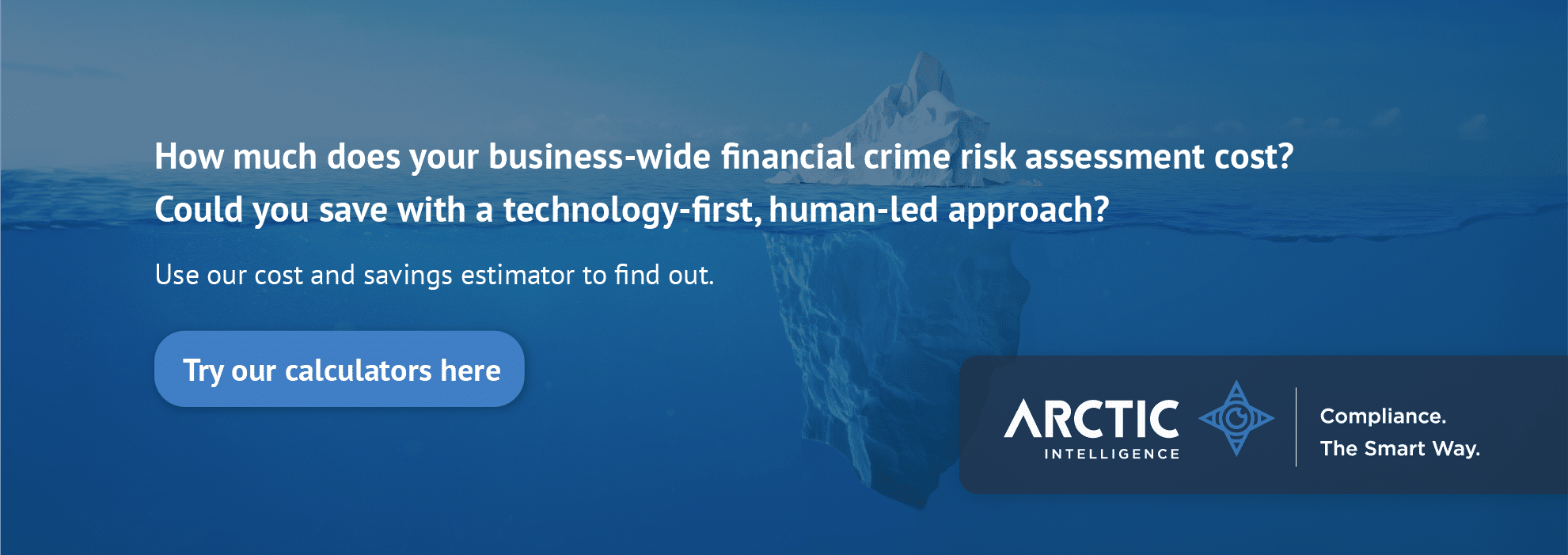Introduction
The Middle East faces unique challenges in combating terrorism financing (TF), given its geopolitical dynamics, proximity to conflict zones, and reliance on informal financial systems like hawala. For the Gulf Cooperation Council (GCC) nations—Bahrain, Kuwait, Oman, Qatar, Saudi Arabia, and the UAE—addressing these risks is critical to safeguarding their financial systems and maintaining global trade and investment ties. This article examines the Middle East’s TF risks, highlights GCC compliance efforts, and explores opportunities for further strengthening counter-terrorism financing (CTF) frameworks.
Key Terrorism Financing Risks in the Middle East
The Middle East faces a unique and complex set of terrorism financing (TF) risks due to its geopolitical landscape, economic structures, and cultural practices. These risks stem from the region’s proximity to conflict zones, reliance on informal financial systems, vulnerabilities in charitable operations, and the high volume of trade-based financial activities.
Proximity to Conflict Zones
The Middle East’s geographic closeness to conflict areas such as Syria, Iraq, and Yemen makes it a critical hotspot for terrorism financing. Militant groups like ISIS, Al-Qaeda, and the Houthis exploit the region’s networks to transfer funds and sustain their operations. Prolonged conflicts create opportunities for terrorist organisations to establish footholds, recruit supporters, and smuggle goods or resources that fund their activities. These dynamics intensify the challenges for financial institutions and governments in detecting and disrupting illicit financial flows tied to terrorism.
Hawala and Informal Financial Systems
Hawala and similar informal remittance systems are deeply embedded in the Middle East’s economic fabric, particularly in areas where formal banking is underdeveloped or inaccessible. These systems operate on trust and personal relationships, facilitating quick and low-cost money transfers outside the scope of traditional banking regulations. While hawala serves legitimate purposes for many, its anonymity and lack of paper trails make it attractive for terrorist financiers seeking to avoid detection. The widespread use of such systems complicates efforts to monitor and trace financial activities linked to terrorism.
Charity Misuse
Charitable organisations play a significant role in the cultural and religious fabric of the Middle East, often providing critical humanitarian aid. However, inadequate oversight and regulation in some jurisdictions have made these entities vulnerable to exploitation by terrorist groups. In some cases, funds raised under the guise of charitable donations have been diverted to finance militant activities. Despite ongoing efforts to strengthen regulatory frameworks, the misuse of charities remains a persistent TF risk in the region.
Trade-Based Money Laundering (TBML)
The Gulf Cooperation Council (GCC) states and other Middle Eastern countries are major global trading hubs, handling vast volumes of legitimate trade. However, the scale and complexity of regional trade create opportunities for trade-based money laundering (TBML). By manipulating trade transactions—such as over-invoicing, under-invoicing, and misdeclaring goods—terrorist organisations can disguise the movement of funds. The challenge lies in distinguishing between legitimate trade and illicit activities, a task made more difficult by the high volume of transactions and the region’s status as a key nexus in global trade.
These terrorism financing risks underscore the importance of robust regulatory measures, regional cooperation, and advanced monitoring technologies to mitigate threats in the Middle East. A balanced approach that respects cultural practices while addressing vulnerabilities is essential for disrupting financial networks that support terrorism.
GCC Compliance Efforts and Achievements in AML/CTF
GCC countries have made significant progress in combating money laundering (ML) and terrorism financing (TF), reflecting their commitment to global standards and regional stability. By aligning with the Financial Action Task Force (FATF) standards, enhancing regulatory frameworks, adopting advanced technologies, fostering public-private partnerships, and engaging in international cooperation, the GCC demonstrates a robust and evolving approach to AML/CTF compliance.
Commitment to FATF Standards
GCC countries have shown strong alignment with the FATF and its regional counterpart, the Middle East and North Africa Financial Action Task Force (MENAFATF).
- Saudi Arabia: As the only FATF member in the GCC, Saudi Arabia has implemented rigorous AML/CTF measures, including comprehensive monitoring of financial institutions, improved regulatory oversight, and enhanced risk assessments for high-risk sectors. The Saudi Central Bank (SAMA) plays a pivotal role in enforcing compliance and imposing penalties for violations.
- United Arab Emirates (UAE): Recently removed from the FATF “grey list,” the UAE has made significant strides in improving financial transparency. Efforts include introducing tighter controls over high-risk sectors like real estate and regulating free zones to prevent misuse by financial criminals.
This alignment underscores the GCC’s dedication to meeting international expectations and maintaining regional and global financial integrity.
Enhanced Regulatory Frameworks
To address the evolving threats of ML and TF, GCC countries have overhauled their regulatory frameworks, introducing stringent laws and enforcement mechanisms.
- Centralised Oversight: Regulatory authorities such as the UAE Central Bank and SAMA ensure strict compliance with AML/CTF laws. These bodies mandate regular audits, impose severe penalties for non-compliance, and monitor high-risk financial activities.
- Charity Regulations: Recognising the misuse of charitable organisations for TF, countries like Saudi Arabia and the UAE have introduced robust rules requiring transparency in donation collection and distribution. These measures ensure funds reach legitimate recipients and mitigate the risk of diversion to terrorist networks.
Such enhancements demonstrate the GCC’s proactive approach to building resilient financial systems capable of addressing both traditional and emerging risks.
Technology Adoption
The GCC is leveraging cutting-edge technologies to enhance the effectiveness of its AML/CTF efforts, particularly in detecting and preventing financial crimes.
- AI-Powered Monitoring: Financial institutions across the GCC are increasingly adopting artificial intelligence (AI) and machine learning to identify suspicious transaction patterns and flag potential ML/TF activities. These tools improve efficiency and reduce false positives in transaction monitoring systems.
- Blockchain Analytics: With the rising use of cryptocurrencies, GCC regulators have implemented blockchain tracing tools to monitor digital asset transactions. This ensures transparency in cryptocurrency flows and prevents misuse by criminal networks.
These technological advancements position the GCC as a leader in innovative approaches to financial crime prevention.
Public-Private Partnerships (PPPs)
Collaboration between government authorities and private entities forms a cornerstone of the GCC’s AML/CTF strategy.
- Suspicious Activity Reporting: Financial institutions are required to report suspicious transactions to centralised financial intelligence units (FIUs), enabling swift identification and response to ML/TF risks.
- Joint Training Programs: Governments and private entities conduct joint training sessions to enhance the capacity of banks, legal professionals, and other businesses in identifying and mitigating financial crime risks.
By fostering trust and cooperation between public and private sectors, the GCC enhances its overall AML/CTF effectiveness.
International Cooperation
The GCC actively engages in global AML/CTF initiatives and strengthens its intelligence-sharing capabilities through international collaborations.
- Egmont Group Participation: GCC countries contribute to the Egmont Group of Financial Intelligence Units, enabling cross-border intelligence sharing and coordinated efforts to disrupt ML/TF networks.
- Bilateral Agreements: Partnerships with countries such as the United States and the United Kingdom bolster the GCC’s ability to access global intelligence, strengthen enforcement mechanisms, and enhance capacity building.
Such international engagement highlights the GCC’s commitment to global security and the prevention of financial crime.
By focusing on regulatory alignment, technological innovation, collaborative frameworks, and global partnerships, the GCC has demonstrated substantial progress in strengthening its AML/CTF compliance. While challenges remain, the region’s proactive and forward-looking strategies ensure its resilience against financial crime and reinforce its status as a critical player in global financial security.
Challenges in GCC compliance with AML/CTF Laws
GCC countries have made significant strides in strengthening their AML/CTF frameworks. However, several challenges persist, impeding their ability to implement consistent and robust measures. These challenges range from regulatory inconsistencies and the difficulty of monitoring informal financial systems to capacity limitations and the emergence of new financial technologies.
1. Regulatory Harmonisation
Despite the shared regional goals of combating financial crime, variations in AML/CTF regulations across GCC countries create enforcement disparities. Each nation maintains its own regulatory framework, which, while aligned with international standards, often differs in terms of scope, implementation, and enforcement intensity.
- Inconsistencies in Enforcement: The lack of uniformity leads to fragmented enforcement efforts, allowing financial criminals to exploit weaker jurisdictions within the region. Harmonising regulations across GCC countries would promote a more unified and effective response to money laundering and terrorism financing
- Challenges to Collaboration: Divergent regulatory priorities and approaches complicate cross-border cooperation and information sharing. A more standardised framework, potentially modelled on FATF recommendations, could strengthen regional efforts and facilitate seamless collaboration
2. Monitoring Informal Financial Channels
The prevalence of informal financial systems, such as hawala networks, poses a significant challenge to AML/CTF compliance in the GCC. These systems, deeply embedded in cultural and economic practices, operate outside formal banking channels, providing anonymity that can be exploited for illicit purposes.
- Regulatory Oversight Limitations: While some countries, like the UAE, have introduced regulations to monitor hawala networks, achieving comprehensive oversight remains difficult due to their decentralised and informal nature
- Anonymity Risks: The lack of formal documentation and digital footprints makes it challenging to trace transactions and identify participants, hindering efforts to detect and disrupt TF activities
3. Capacity Gaps
Smaller GCC nations, such as Oman and Bahrain, face resource constraints that limit their ability to effectively enforce AML/CTF measures. These capacity gaps manifest in various ways:
- Enforcement Limitations: Insufficient financial and human resources hinder the ability of smaller countries to conduct thorough investigations, audits, and prosecutions of financial crimes
- Technological Investment: Advanced technologies like AI, blockchain analytics, and real-time transaction monitoring are critical for combating emerging threats, but smaller nations often lack the funds or expertise to deploy these solutions effectively
- Training Needs: Building capacity requires ongoing investment in training for financial intelligence units (FIUs), law enforcement, and judiciary bodies, which may strain limited budgets
4. Evolving Threats
The rapid rise of virtual assets, cryptocurrencies, and decentralised finance (DeFi) introduces new vulnerabilities into the GCC’s financial systems.
- Regulatory Lag: While some countries, such as Saudi Arabia and the UAE, have implemented robust oversight of virtual asset service providers (VASPs), others lag behind in regulating these emerging technologies. This regulatory disparity creates potential loopholes for financial criminals
- Complexity of DeFi Platforms: Decentralised platforms operate without central intermediaries, making it difficult for regulators to track transactions and enforce compliance. The anonymity provided by these platforms further complicates monitoring efforts
- Constant Adaptation: As financial technologies evolve rapidly, regulators must continuously update their frameworks to address new risks. This dynamic environment places additional pressure on regulatory bodies to remain proactive and innovative
Addressing the Challenges
While the GCC faces significant challenges in its AML/CTF efforts, addressing these issues is critical to safeguarding the region’s financial systems. Initiatives to harmonise regulations, improve oversight of informal financial channels, invest in capacity building, and stay ahead of emerging threats will be vital to enhancing the region’s resilience against financial crime. Enhanced regional cooperation, supported by technology and international partnerships, will play a central role in overcoming these obstacles and achieving a robust, unified response to ML and TF.
Conclusion
GCC nations have demonstrated significant progress in combating terrorism financing (TF) and aligning with global anti-money laundering and counter-terrorism financing standards. Through regulatory reforms, technological advancements, public-private partnerships, and active international cooperation, the GCC has established itself as a critical player in global financial security. These efforts have strengthened financial transparency and resilience across the region, ensuring compliance with Financial Action Task Force (FATF) recommendations and mitigating vulnerabilities in high-risk sectors such as informal financial systems and trade-based money laundering.
However, challenges remain, including the need for greater regulatory harmonisation, effective oversight of informal financial channels like hawala, and capacity building in smaller member states. The rapid evolution of financial technologies such as cryptocurrencies and decentralized finance (DeFi) also demands continuous adaptation of regulatory frameworks. Addressing these challenges will require sustained regional collaboration, investments in advanced monitoring tools, and targeted capacity-building initiatives to equip the GCC with the tools necessary to combat emerging threats effectively.
The GCC’s commitment to innovation and international partnerships positions the region as a leader in the fight against financial crime. By maintaining this momentum, the GCC can ensure robust financial integrity, enhance its global standing, and foster a safer and more transparent economic environment.



